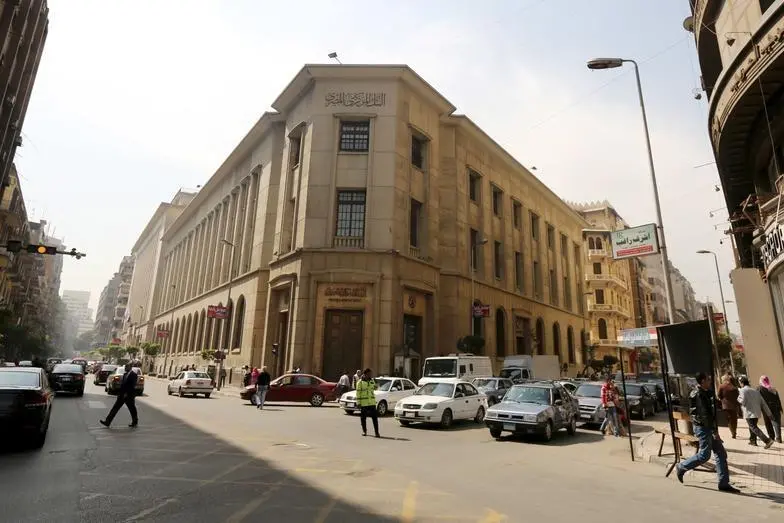PHOTO
Central Bank of Egypt Governor Tarek Amer is upbeat about the economy
By Niveen Wahish
When looking for signs of where the economy is going, statements by the Central Bank governor are an important indicator. This week viewers across the country tuned in to a televised interview with Central Bank of Egypt (CBE) Governor Tarek Amer to find out where the Egyptian economy was heading.
Speaking for over an hour, Amer said that as a result of the economic reform programme currently being implemented by the government the economy had come a long way when compared to where it was four years ago, and he expected it be in a much better position in another four years’ time.
He said hard currency flowing through the banking system had increased 10-fold since the floatation of the Egyptian pound in November 2016. “The banks have received $13.5 billion since the floatation, mostly from Egyptian savers,” he said.
He said the floatation had been long overdue, saying that it was an important move that would have positive effects on the economy. The negative effects had not been as serious as they might have been, he said.
The International Monetary Fund (IMF) has said that the Egyptian currency depreciated beyond its expectations following the floatation of the pound and that after the floatation inflation had increased beyond its calculations.
Following the floatation, the pound was trading at around LE18 per dollar until a couple of weeks ago, when it began cooling to around LE16. But the IMF was basing its calculations on figures from May last year, while the Egyptian authorities had made their calculations based on more recent figures, Amer said.
“The inflationary shock happened, and the currency rate will not have an effect on inflation again. It’s a thing of the past,” Amer said.
Since November, inflation has escalated, reaching around 30 per cent in January.
But Amer stressed that for years the authorities had failed to tackle the country’s economic problems, which was “why we had to take several measures at once”.
Egypt floated the pound and cut subsidies on fuel products in one go in November. A couple of months earlier it also imposed a new value-added tax (VAT), a step which also set inflation on an upward trend.
Speaking about the exchange rate, Amer said the market needed time to find a balance. “There will be fluctuation until it reaches equilibrium,” he said, denying reports of CBE intervention in the market and saying that this would abort the reform efforts. He dismissed previous statements he had made about the pound eventually reaching LE4 to the dollar as a “joke”.
Good news in the interview included the announcement that some $1.5 billion in arrears would be paid to the international oil companies this year. Amer also said that the repatriation of profits by foreign companies was being taken care of and that all outstanding requests for hard currency by importers had been met.
Amer said that restrictions on hard currency transfers were expected to ease gradually, adding that by the end of 2017 individuals should be able to buy hard currency without restrictions from the banks. Currently, individuals have to present proof of need when requesting hard currency, and there is a $100,000 limit on annual transfers by individuals and companies. According to the agreement with the IMF, this should be lifted by mid-2017.
In the interview, Amer said he was not worried about growing foreign debt, saying that it would reach about 30 per cent of GDP by June, up from around 17 per cent earlier. However, Egypt’s debt could go up to 50 per cent of GDP, he said.
Part of the reason for the increase is attributed to the fact that the depreciation of the value of the pound has caused GDP to decrease when denominated in dollars. Before the floatation, Egypt’s GDP amounted to around $300 billion.
On another positive note, Amer estimated that the country’s current account deficit of around $20 billion would drop by 50 per cent. The remaining 50 per cent, he said, would be financed from real resources not loans.
The government’s reforms are geared towards encouraging domestic production rather than encouraging imports, Amer stressed. In that context, he said he had received pledges for investment from several international investors.
He said that any foreign funds acquired would now be used to beef up the reserves and would not be wasted. He also lamented that more than $30 billion in assistance from the Gulf had now been spent and that Egypt was now repaying it.
© Al Ahram Weekly 2017





















